Why Do Things Lose Their Meaning?
(Inferno, Canto XIX): Simonists, Nicholas, Boniface
The function of prayer is not to influence God, but rather to change the nature of the one who prays.
~ Søren Kierkegaard
Welcome to Dante Read-Along! 🌒
(If this post appears truncated in your inbox you can read it on the web by clicking here. )
Welcome to Dante Book Club, where you and I descend into Hell and Purgatory to be able to ascend to Paradise. Our guide is the great Roman poet Virgil and in this Nineteenth Canto we enter the third pouch of the Eighth Circle and the Simoniacs. You can find the main page of the read-along right here, reading schedule here, the list of characters here (coming soon), and the list of chat threads here.
In each post you can find a brief summary of the canto, philosophical exercises that you can draw from it, themes, character, and symbolism explanations.
All the wonderful illustrations are done specially for the Dante Read-Along by the one and only Luana Montebello.
This Week’s Circle ⭕️
Third pouch of the Eighth Circle - Simon Magus - Simonists upside down in holes in the rock - Those trafficking in holy things with their feet on fire - The corruption of the church - Pope Nicholas III - Pope Boniface VIII - Pope Clement V.
Canto XIX: Summary
Dante begins this canto - here in the third pouch of the Eighth Circle - with a cry to his reader like a declaration, heralding the subject of the canto to come and the profound nature of the error he is about to lay out, one that strikes to the heart of his time - corruption in the church.
In opening with the figure of the followers of Simon Magus, Dante from the first moment points to the sin of Simony. These sins, of buying and selling church offices and favors, prostitute the things that should be respected as pure and holy; these “rapacious ones” take what they want through payment rather than merit, exposing their excessive and malicious greed. They have “made money out of what belongs to God, reversed the proper order of things, and subordinated the heavenly to the earthly.”1 Here in this level, Dante announces that “the time has come to let the trumpet sound for you” (XIX.5-6), the call of the trumpet being the sign of Judgment.
Dante and Virgil are on the bridge leading to the third bolge, or pouch, and Dante praises God and his wisdom that shows in all things that spring from him. The sides and bottom of this third pouch were filled with holes, all the same size, that reminded him of the baptismal fonts in the church of San Giovanni in Florence, where Dante himself was baptized.
And one of these, not many years ago,
I broke for someone who was drowning in it:
and let this be my seal to set men straight.
XIX.19-21
Dante is referring to an event in which he himself had broken one of these fonts:
A small boy who was playing round the font one day got jammed in one of these holes, and was extricated by Dante, who took the responsibility of breaking down the marble surround. A garbled account of this story was apparently circulated, in which Dante no doubt figured as a sacrilegious destroyer of Church property - hence his determination to put the facts on record.2
From these holes in the ground Dante saw legs and feet protruding, kicking violently with burning soles, the flames licking across the surface of the bottom of their feet. One is kicking more violently than the others, and Dante asks Virgil who it is; in order to see him they must descend into the pouch.
And he to me: “If you would have me lead
you down along the steepest of the banks,
from him you’ll learn about his self and sins.”
And I: “What pleases you will please me too:
you are my lord; you know I do not swerve
from what you will; you know what is unspoken”
XIX.34-39
They went across the bridge that was over this third trench, and turning back, descended into it.3 Dante asks the soul to speak to him.
This soul is Pope Nicholas III - although he is never explicitly named - who held office from 1277-1280. Their positioning is such that Dante, standing, is like a confessor to the upside down pope, who is compared to a “foul assassin” (XIX.50) trying to delay his execution by saying one last thing to his confessor. In Florence, being buried head downward was the method of execution for assassins - it was called propagginazione, “the planting of grapevines.”4
The first thing this sinner cries out shows that he is mistaking Dante for someone else: Pope Boniface VIII. Nicholas says “the book has lied to me by several years,” (XIX.54) referring to that foresight that those in Hell have for future events. He knows that Boniface is to join him in this third pouch of Simony, but did not think it would be so soon. This sinner calls out accusingly:
Are you so quickly sated with riches
for which you did not fear to take by guile
the Lovely Lady, then to violate her?
XIX.55-57
Nicholas accuses him of taking the Church - the “Lovely Lady” - through deceit, and by so doing has prostituted the church, selling her for gold. Dante is still as he tries to think of how to answer this accusation, but Virgil tells him to let this sinner know he has the wrong person.
The sinner, sighing, identifies himself as he who “wore the mighty mantle” of the pope (69), and was the “son of the she-bear” (70), indicating that he was of the Orsini family. Pope Nicholas III of Rome was Giovanni Gaetano degli Orsini, who “pursed wealth above while here I purse myself” (72). His short papacy was filled with nepotism and simony. Of his intrigues Villani says “he was one of the first, if not the first pope at whose court simony was openly practiced for the benefit of relatives.”5
Below my head there is the place of those
who took the way of simony before me;
and they are stuffed within the clefts of stone
I, too, shall yield my place and fall below
when he arrives, the one for whom I had
mistaken you when I was quick to question.
XIX.73-78
In the holes in which the Simonists are turned upside down are others stuffed deeper within; as a new soul arrives, they take their place and the one before them is pushed further down. This hole seems reserved for popes, perhaps explaining why his legs were kicking the most violently - for the greatest sins committed - that made them stand out to Dante.
Nicholas, with the foresight of those in Hell, even sees the one that will arrive after Boniface (82): Clement V. He calls Clement V a second Jason, a figure from the apocryphal book of Maccabees in the Old Testament. Jason was as indebted to king Antiochus for swaying his appointment as Pope Clement V would be to king Philip the IV of France, who was instrumental in having him elected pope not due to spiritual merit but to political intrigue.
After listening to this speech, Dante says “I do not know / if I was too rash here - I answered so” (XIX.88-89). Here begins his speech on the state of the church, from lines 90-117, using prophetic verse.
He asks, in stinging tones, how much St. Peter had to pay to get the keys to the kingdom?6 He asks if Peter asked Matthias, the replacement of Judas the betrayer, for payment for his position (Acts 1: 15-26)? Dante sees his punishment as fitting to the crime, and beseeches Nicholas to keep with care “the money got by evil / that made you so audacious against Charles” (XIX.98-99).7 Dante would say more, be more scathing, but his respect for the institution of the church prevents him.
You shepherds, the Evangelist had noticed
when he saw her who sits upon the waters,
and realized she fornicates with kings,
she who was born with seven heads and had
the power and support of the ten horns,
as long as virtue was her husband’s pleasure.
XIX.106-111
In this imagery from the book of Revelation of St. John, the ten horns refer to the ten commandments, and the power of the ten horns is the power of these commandments when followed by her husband, the pope, who should be invested in virtue. Yet now she is a prostitute, having been sold for money. The seven heads are the sacraments of the church; Baptism, Confirmation, Holy Communion, Confession, Marriage, Holy Orders, and the Anointing of the Sick. These stewards of the church now worship money as their god.
Come hither; I will shew unto thee the judgment of the great whore that sitteth upon many waters: With whom the kings of the earth have committed fornication, and the inhabitants of the earth have been made drunk with the wine of her fornication. So he carried me away in the spirit into the wilderness: and I saw a woman sit upon a scarlet coloured beast, full of names of blasphemy, having seven heads and ten horns. Revelation 17:1-3
When Dante says that idolaters “worship one and you a hundred” (XIX.114) he is referencing that the church has turned everything that is of money or gold into a god to worship, that they no longer serve the one God. He laments the effect of the Donation of Constantine (115) - a forged document in which Constantine granted lands and authority to the church. In Dante’s time, it had not yet been proven fraudulent, but even so Dante saw the misinterpretation that the church was using to their own ends.8 As Dante finished his speech, Nicholas kicked even more violently; but Virgil, listening, was pleased. They prepared to leave.
Virgil, still protective as a father, not only carries Dante again, but holds him in an embrace to climb back out of the trench:
And then he gathered me in both his arms
and, when he had me fast against his chest,
where he climbed down before, climbed upward now;
nor did he tire of clasping me until
he brought me to the summit of the arch
XIX.124-128
Virgil sets Dante down here - gently - as they prepare to move to the next trench, the fourth pouch.
💭 Philosophical Exercises:
All truths that are kept silent become poisonous.
~ Friedrich Nietzsche
About two decades ago, my mother and I stepped into a church—out of respect for a particular Christian denomination, I will withhold specific details. I was in my teenage years and recall my surprise when a woman selling candles and other religious items told my mother that we could request a prayer from the priest for a modest fee.
Religion had never played a significant role in my family, and this visit to the church was unusual. Yet, I left that place with a lingering unease, a bad taste in my heart, and a mind full of thoughts to contemplate.
At the time, I had not yet discovered Dante, nor had I encountered the word simony. And yet, seven hundred years after Dante’s Inferno, I experienced religious fraud firsthand.
There was something unsettling about the idea of someone else—even a priest9—praying on my behalf in exchange for a fee.
Much later, I came across the Danish philosopher Søren Kierkegaard, who captured in a single sentence the very reason I felt such deep disgust at the idea of purchasing a prayer. He wrote:
‘The function of prayer is not to influence God, but rather to change the nature of the one who prays.’
Th biographer of Kierkegaard - Claire Carlisle, describes him perfectly by presenting the Danish genius as The Philosopher of the Heart. Like any truly profound thinker, Kierkegaard wove together psychology, philosophy, and theology—each discipline offering a different lens through which to explore the inner workings of the human psyche and soul.
The purpose of prayer is not to bend the will of an unseen supernatural power but to shape the soul, to return us—again and again—to the weight and wonder of existence.
It was only later—when I read The Divine Comedy for the first time—that I realised what I had witnessed that day was nothing more than simony. The reason I was so appalled by the idea of “a prayer for a fee” was that it degraded the essence of genuine prayer. Simony reduced it from an act of inner transformation to a mere transaction, a commodity stripped of its true meaning.
In the post dedicated to the previous bolgia (panderers, seducers and flatterers) I added a quote:
No one has driven me further from religion than the very people who claim to uphold it.
This is a thought I recorded in my journal back in 2015, and it feels particularly relevant to this stage of our journey. The reason simonists are punished so severely in the Inferno is that their fraud corrupts the true meaning of prayer and belief. It reduces a profound act of self-discovery into a hollow superstition—a mere transaction with an imagined deity, a bearded figure in the clouds, waiting for requests like a celestial merchant of favour.
This Week’s Sinners and Virtuous 🎭
(Themes, Quotes, Terms and Characters)
A Joke About Simonists
A good joke could be like a great line in poetry. It could reveal a hidden truth that some refuse to see. Here is one with a small disclaimer that the joke was translated from another language into English:
An old lady stands in a church, praying to God for enough money to pay her heating bills. As she does so, a luxurious car pulls up outside, and a wealthy man steps in, standing beside her. He begins to pray as well, asking for an even more expensive car so he can outshine his rival.
Soon, a kind of competition unfolds between them—each trying to pray louder than the other, believing that the louder they pray, the better their chances that God will grant their request over the others.
After ten minutes of this futile contest, the rich man stops, turns to the old lady, and says, “Here, take a thousand dollars—stop bothering God with such trivial requests.”
Simonists’ Contrapasso: Mouth
The flatterers in the previous canto were immersed in excrement, while the simonists here are plunged headfirst into a burning hole, which Dante pointedly describes as bocca—a mouth. They spent their lives consumed by earthly matters, and now the infernal mouth devours them in turn. What is most striking, however, is that Dante’s choice of the word bocca suggests an inevitable fate: in time, they will be fully swallowed, utterly consumed by the very greed that once governed them.
Corruption is Continuous
Nicholas, Boniface, and then Clement—Dante’s vision of the Church is profoundly pessimistic. He sees the infernal bocca as insatiable; once it has devoured Nicholas, Boniface will follow, and after him, Clement. The corruption is not a singular event but a chain, each link dragging the next into damnation.
Fraud is so close to the centre of the Inferno because it strips of meaning the things we consider to be to us most sacred.
The Story of the Donation of Constantine
In my review of Sarah Bakewell’s book on Humanism, I briefly discussed Lorenzo Valla—a Renaissance humanist who exposed as a forgery the document the Church had long used to justify its dominion. In Dante’s time, however, the Donation of Constantine was widely believed to be authentic. The claim that Emperor Constantine had transferred his imperial authority to the Church after being miraculously healed from a mortal illness remained unquestioned, shaping both religious and political thought.
Quotes 🖋️
(The ones I keep in my journal as reminders of eternal wisdom):
Stay as you are, for you are rightly punished;
and guard with care the money got by evil
that made you so audacious against Charles.…
You’ve made yourselves a god of gold and silver;
how are you different from idolaters,
save that they worship one and you a hundred?
Characters:
- Simon Magus - Simon Magus was a sorcerer who, after converting to Christianity and being baptized, saw the disciples of Jesus conferring the Holy Spirit onto others. He offered money to the apostles in exchange for the authority to do so himself, but Peter scorned him, saying “You have no part or share in this ministry, because your heart is not right before God” (Acts 8:21 KJV).
- Nicholas III - Giovanni Gaetano degli Orsini, he was pope from 1277-1280, and well known for his blatant practice of simony both through the selling of church offices and in appointing his own relatives to high position within the church.
- Boniface VIII - Pope from 1294 to 1303. Villani says of Boniface: “By aggrandizing the church and his relatives, he became very rich; nor did he have any scruples about making profits, for he said that everything that belonged to the church was lawfully his…In his time he created several cardinals from among his friends and confidants, among them two very young nephews of his, and an uncle…he also created twenty bishops and archbishops from among his relatives and friends in the small city of Anagni, giving them rich dioceses.”10
- Clement V - Pope from 1305 until his death in 1314, he was responsible for the split in the Church when he moved the seat of the papacy from Rome to Avignon, France in 1309, where it remained for 70 years. His election to pope was essentially bought by the king of France, Philip the Fair.
- Jason - In the apocryphal book of 2 Maccabees, Jason was a Jewish high priest who bribed king Antiochus Epiphanes to obtain his position. Once Jason became high priest, they worked to dismantle the Jewish beliefs of the people and bring them into Greek practices with their customs and gods. This created the Jewish revolt against the Maccabees.
When Seleucus died and Antiochus, who was called Epiphanes, succeeded to the kingdom, Jason the brother of Onias obtained the high priesthood by corruption, promising the king at an interview three hundred sixty talents of silver, and from another source of revenue eighty talents. In addition to this he promised to pay one hundred fifty more if permission were given to establish by his authority a gymnasium and a body of youth for it, and to enroll the people of Jerusalem as citizens of Antioch. When the king assented and Jason came to office, he at once shifted his compatriots over to the Greek way of life. (2 Maccabees 4:7-10)
Sayers Hell 192
Sayers 192
Some translations say that Virgil carried Dante down into the trench, as it was too steep for his mortal body to make it down. Mandelbaum says that Virgil will “lead” him down, but Sayers, Musa, and Singleton all say “carry.” As we see, Virgil will also carry him back out.
Singleton Commentary on Inferno 333
Singleton 338
And I tell you that you are Peter, and on this rock I will build my church, and the gates of Hades will not overcome it. I will give you the keys of the kingdom of heaven; whatever you bind on earth will be bound in heaven, and whatever you loose on earth will be loosed in heaven. (Matthew 16:18-19 KJV)
Charles of Anjou was the king of Sicily, and Nicholas had been paid to create rebellion on the island against him, leading to an insurrection called the Sicilian Vespers, which led to a massacre. Nicholas was invested in this treachery as he had not been allowed to marry the niece of Charles of Anjou.
In the Monarchia III.x.1-6, Dante says “Furthermore they maintain that when the Emperor Constantine had been cleansed of leprosy by the intercession of Sylvester (The Supreme Pontiff at that time), he donated the very seat of Empire (i.e. Rome) to the Church, along with many other Imperial prerogatives”
Some would say ‘especially a priest’ since many of them, as Dante knew himself, practice simony
Singleton 335

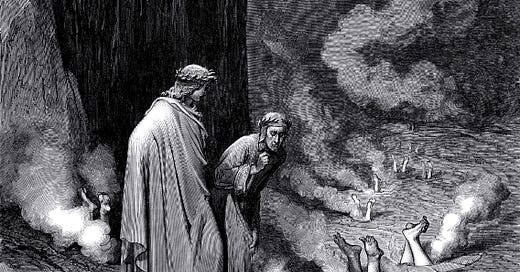



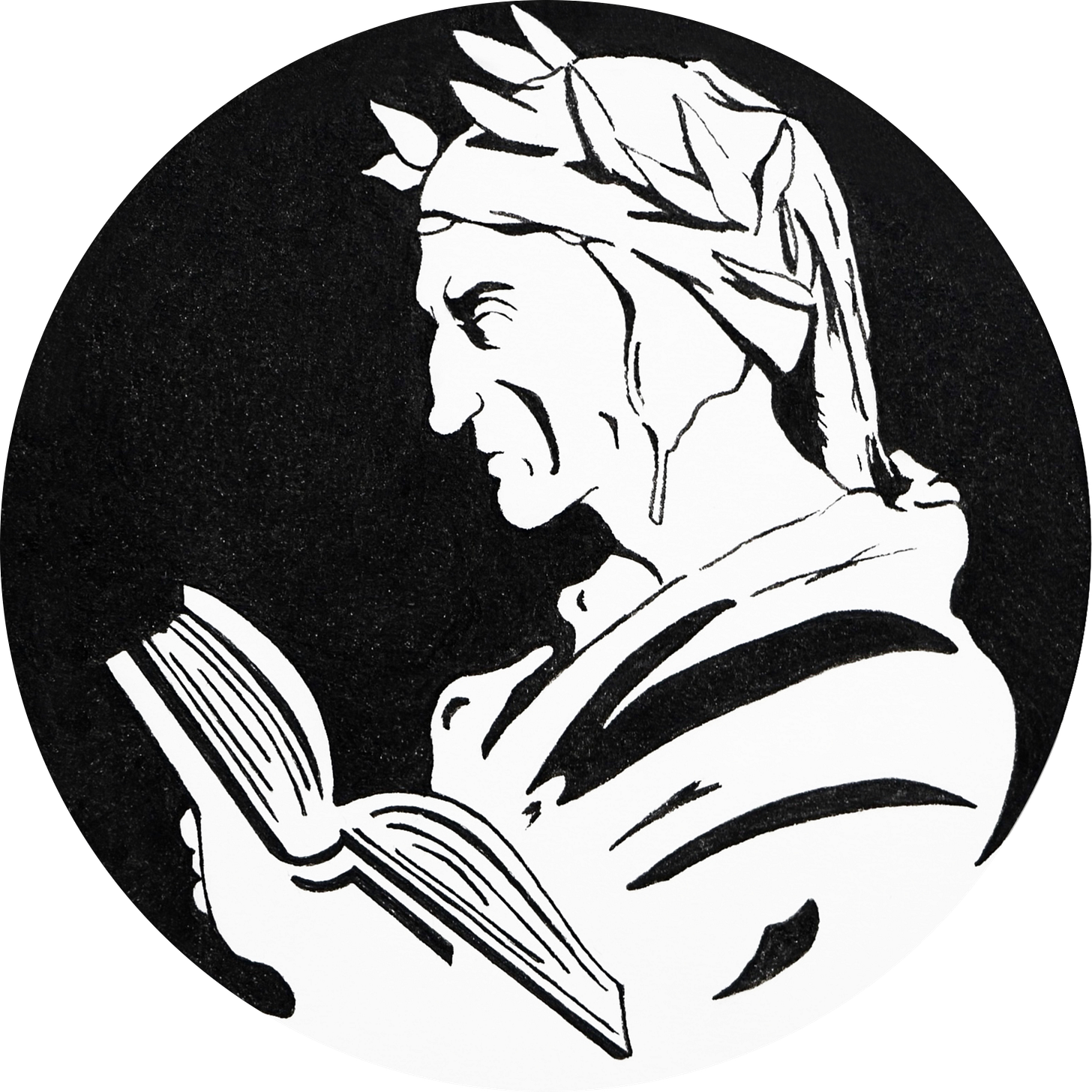



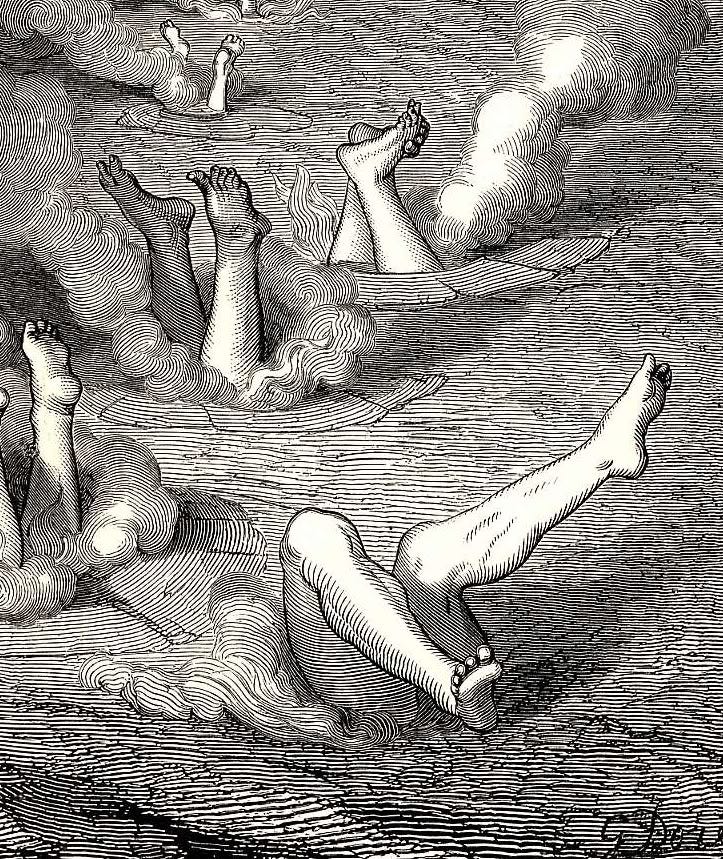

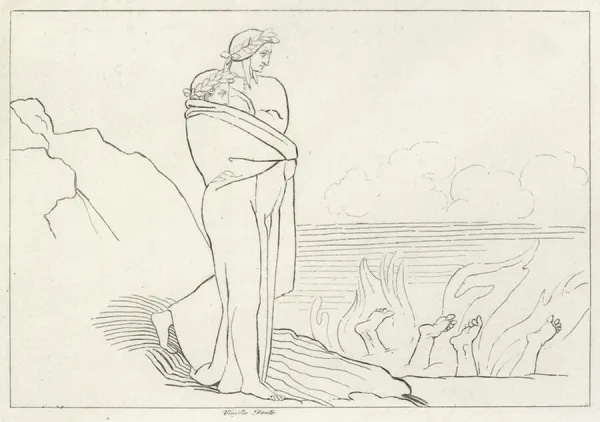

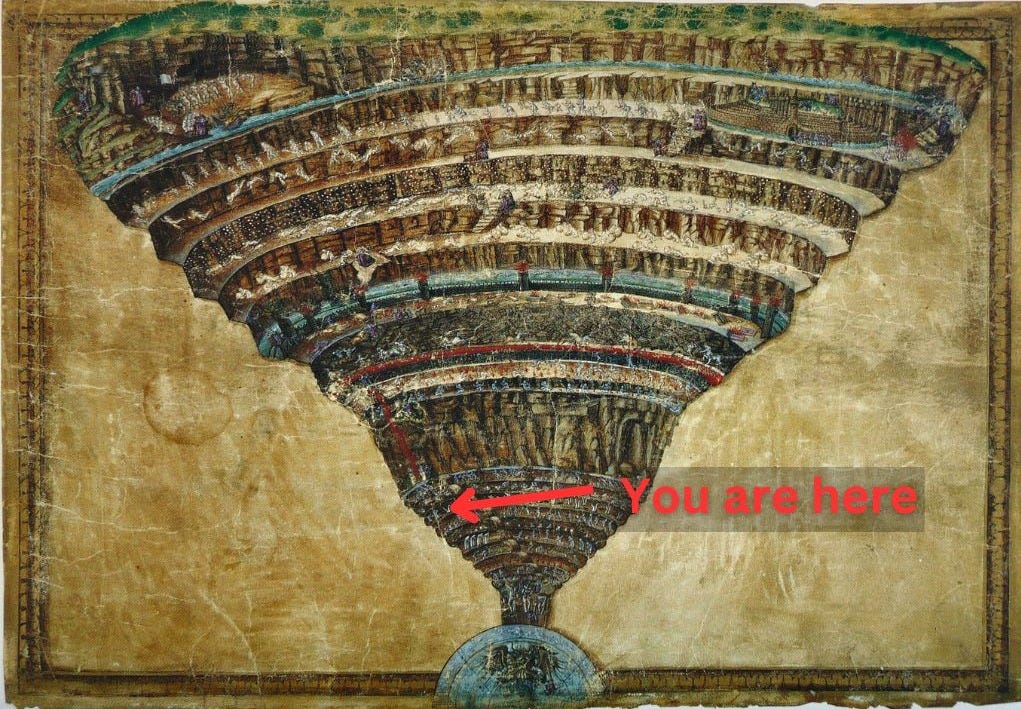


I am sorry that you experienced simony first hand. I am Roman Catholic and most people I know within the Church avoid anything that hints of simony. There are a lot of bad actors in history to live down. Corruption is a temptation to any in power, it is most offensive among those who should know better. Dante’s vision of Hell points to the truth that none of us can escape the consequence of our sin, private or public.
>A small boy who was playing round the font one day got jammed in one of these holes
Kids at Mass - still acting up after 2,000 years lol. Love it!
Edit:
>Dante would say more, be more scathing, but his respect for the institution of the church prevents him.
*sigh.* The struggle is real. I am continually amazed at how beautifully relevant this literature is not just to modern times, but to my own life now, every day.